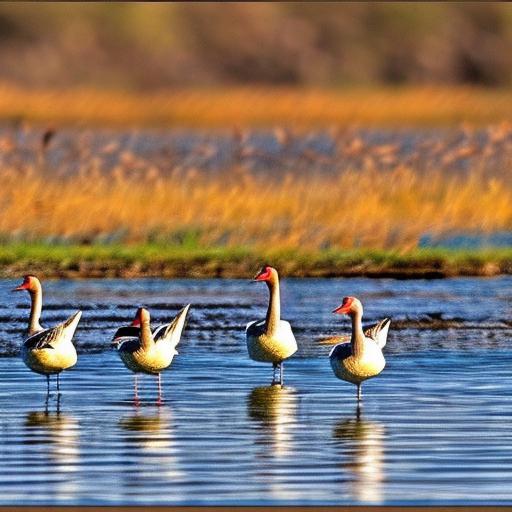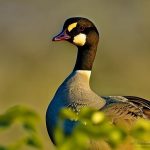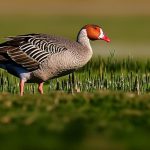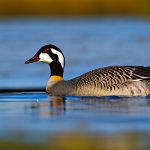Geese can be a beautiful sight to behold, but they can also be a nuisance, especially when they invade your property. Fortunately, there are natural ways to keep geese away without causing harm to them or the environment. Using natural deterrents is not only more humane, but it is also safer for the geese and other wildlife.
Key Takeaways
- Natural geese deterrents can be effective in keeping geese away from your property.
- Understanding geese behavior and habits is important in developing a successful deterrent strategy.
- Creating a geese-free landscape involves removing food sources and nesting areas.
- Sound and visual deterrents can be used to scare geese away.
- Planting geese-resistant vegetation and using natural repellents can also be effective.
Understanding Geese Behavior and Habits
Before we delve into the various natural deterrents, it is important to understand geese behavior and habits. Geese are social animals that mate for life. They are attracted to open spaces with water and grass, making parks, golf courses, and residential lawns prime targets for their presence.
Creating a Geese-Free Landscape
One of the first steps in deterring geese from your property is to create an environment that is less attractive to them. Keeping the grass short and removing any standing water will discourage geese from settling in your area. Geese prefer tall grass as it provides cover and easy access to food sources. By keeping the grass short, you eliminate their hiding spots and make it less appealing for them to stay.
Using fencing or netting can also be an effective way to block off areas where geese like to gather. This can be particularly useful for properties with ponds or lakes. By creating physical barriers, you prevent geese from accessing these areas and encourage them to move on.
Utilizing Sound as a Deterrent
Geese are easily startled by loud noises, making sound deterrents an effective method of keeping them away. There are various devices available that emit sounds that mimic natural predators, such as coyotes or birds of prey. These devices can be strategically placed around your property to create a sense of danger for the geese.
Using Visual Deterrents to Keep Geese Away
In addition to sound deterrents, visual deterrents can also be effective in keeping geese away. Geese are scared of things that move or look like predators. By using decoys or flags that move in the wind, you create a sense of danger and make your property less appealing to geese.
Decoys, such as plastic coyotes or owls, can be placed strategically around your property to deter geese. These decoys should be moved regularly to prevent geese from becoming accustomed to their presence. Flags or streamers that move in the wind can also be effective in scaring geese away.
Planting Geese-Resistant Vegetation
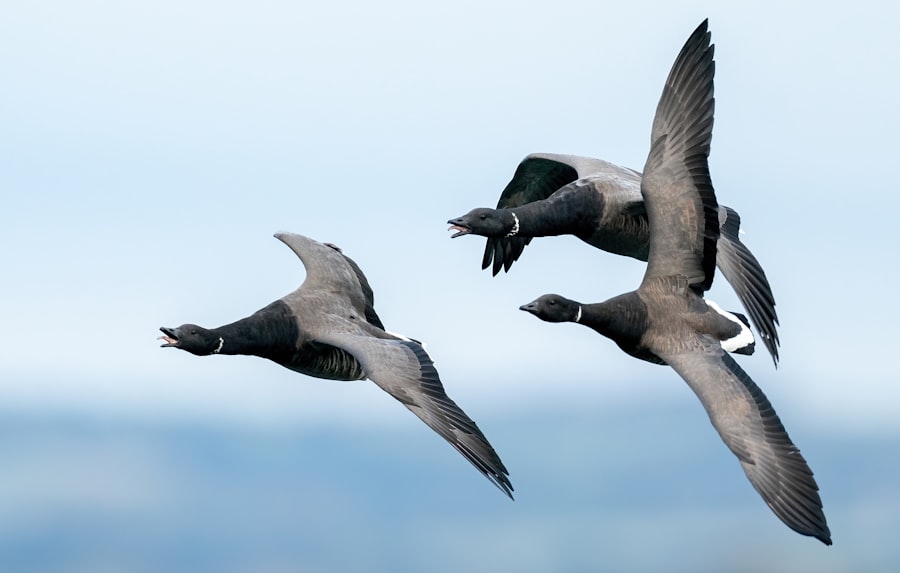
Certain plants are less attractive to geese and can be used to deter them from gathering in specific areas. Plants with strong scents or prickly textures are often avoided by geese. Some examples of geese-resistant vegetation include lavender, rosemary, and juniper bushes.
By planting these types of vegetation in areas where geese like to gather, you make your property less appealing to them. It is important to note that while these plants may deter geese, they may attract other wildlife, so it is important to consider the overall impact on your property.
Using Natural Repellents to Keep Geese at Bay
Certain smells and tastes are unappealing to geese and can be used as natural repellents. Garlic or hot pepper spray can be applied to areas where geese like to gather, making them less desirable for the birds. These natural repellents are safe for the environment and do not cause harm to the geese.
It is important to reapply these repellents regularly, especially after rain or watering, as they may wash away over time. Additionally, it is important to note that while these repellents may deter geese, they may not be 100% effective and should be used in conjunction with other deterrent methods.
Encouraging Natural Predators to Control Geese Populations
One of the most natural ways to control geese populations is by encouraging natural predators to inhabit your property. Predators like foxes and coyotes can help keep geese populations in check. By creating habitats for these predators, such as providing shelter and food sources, you can encourage them to frequent your property.
It is important to note that encouraging natural predators should be done responsibly and with consideration for the safety of other wildlife and pets. Consult with local wildlife experts or organizations to ensure that you are creating a balanced ecosystem on your property.
Creating Barriers to Prevent Geese from Entering Your Property
Physical barriers can be an effective way to prevent geese from entering your property. Fences or netting can be installed to create a barrier that geese cannot easily cross. It is important to ensure that these barriers are at least 3 feet tall, as geese are capable of flying over shorter barriers.
When installing fences or netting, it is important to consider the aesthetics of your property and any local regulations or restrictions. Choose materials that blend well with the surrounding environment and ensure that the barriers are secure and well-maintained.
Implementing a Comprehensive Geese Management Plan
To effectively keep geese away from your property, it is important to implement a comprehensive geese management plan. This plan should include a combination of natural deterrents, such as sound and visual deterrents, as well as physical barriers.
Regularly monitor and adjust your plan to ensure its effectiveness. Geese may become accustomed to certain deterrents over time, so it is important to switch things up periodically. By implementing a comprehensive plan and staying vigilant, you can successfully keep geese away from your property while maintaining a safe and environmentally-friendly environment.
If you’re looking for natural ways to keep geese away, you might also be interested in learning about how to care for goslings. Goslings are young geese that require special attention and care. This article on Poultry Wizard provides valuable insights on how to properly care for goslings, ensuring their health and well-being. By understanding the needs of goslings, you can create a safe environment that discourages adult geese from nesting or lingering in your area. To learn more about caring for goslings, check out this informative article: https://poultrywizard.com/breeding-geese/how-to-care-for-goslings/.
FAQs
What are some natural ways to keep geese away?
Some natural ways to keep geese away include using decoys, planting certain types of vegetation, using noise deterrents, and using visual deterrents.
What types of decoys can be used to keep geese away?
Decoys that can be used to keep geese away include predator decoys, such as coyote or fox decoys, and swan decoys.
What types of vegetation can be planted to keep geese away?
Vegetation that can be planted to keep geese away includes tall grasses, shrubs, and trees that provide cover and make it difficult for geese to land and take off.
What are some noise deterrents that can be used to keep geese away?
Noise deterrents that can be used to keep geese away include air horns, whistles, and other loud noises that startle the geese and make them uncomfortable.
What are some visual deterrents that can be used to keep geese away?
Visual deterrents that can be used to keep geese away include reflective tape, scarecrows, and balloons that mimic the appearance of predators or other threats.
Meet Walter, the feathered-friend fanatic of Florida! Nestled in the sunshine state, Walter struts through life with his feathered companions, clucking his way to happiness. With a coop that’s fancier than a five-star hotel, he’s the Don Juan of the chicken world. When he’s not teaching his hens to do the cha-cha, you’ll find him in a heated debate with his prized rooster, Sir Clucks-a-Lot. Walter’s poultry passion is no yolk; he’s the sunny-side-up guy you never knew you needed in your flock of friends!

